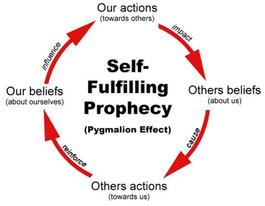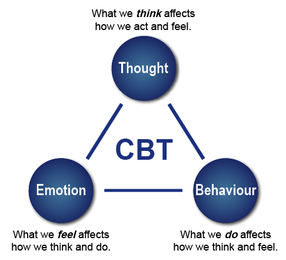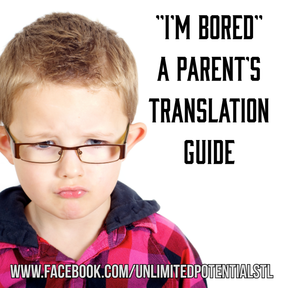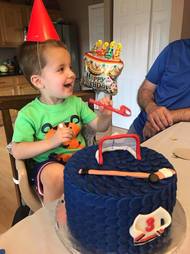 By Andrea Schramm, LPC Our emotions are a natural, powerful information gathering system allowing us to quickly gather information about our own experiences and those of the people around us. Emotions are part of our communication system and influence our social connections with others. Emotions are also physical. We all know the word “feeling” associated with our emotional experiences. So how do our emotions and our ability to understand and manage them connect us with others in both intimate and social relationships? How can we communicate successfully incorporating our emotions? Emotions inform communication. “I feel good…I don’t like her…Yes, I’d love to have dinner tonight…Yuk, I hate sushi.” These are all examples of how emotions inform. Emotional experiences are often connected to our past experiences, our learning history. We experience emotions associated with events we have at some point had before which form our emotional response: “The first time I ate sushi, it was disgusting. It makes me ‘feel’ sick.” We can become programmed to respond emotionally to experiences we’ve had previously. Here are some tips for communicating using emotionally informed behaviors:
Remember, emotions inform. Take some time to acknowledge and think about your own emotions. Why do you think you feel as you do? What past experiences formed the emotional responses you have? Learning to understand emotional responses can build a stronger sense of self and teach us to use emotions to build positive relationships with each other.
0 Comments
 By Melissa Albers, Intern This last semester I took a course called “Positive Psychology” as an elective in my Psychology degree. While this is a difficult subject to explain, the basic idea is that instead of focusing on what can go wrong with people psychologically, we can instead focus on what people can do right. Some common examples of positive psychology are mindfulness, savoring, growth mindset, and cognitive re-framing. But in this post I would like to discuss the topic that struck a chord with me: self-compassion. Self-compassion is based on three important ideas: kindness, mindfulness, and common humanity. It is used when we mess up or are disappointed in ourselves. The first aspect, kindness, is shown when we don’t beat ourselves up for a mistake. For instance, think of your best friend or a family member. If they made a mistake, would you tear them down for it? Would you tell them they were an idiot and worthless? Of course not. So why do we often tell ourselves that? Treating yourself with kindness means being forgiving when you make a mistake and taking care of yourself through that mistake. Mindfulness is the idea that we can’t simply ignore our negative feelings. When we mess up or something doesn’t go our way, it is okay to feel disappointed and upset. You shouldn’t ignore the feeling, but you also shouldn’t dwell on it. Acknowledge and experience the emotion and then let it go. When you have a negative thought or feeling, let it approach you and land on you, like a butterfly. Be still and let it rest before it takes off again. Finally, self-compassion deals with the idea of a common humanity. Essentially, everyone else messes up and makes mistakes just as much as we do. This is a part of the human experience, and we should embrace it just as we embrace joy in accomplishments. Your negative experience is shared by many other people in this world, and in that fact, you can find comfort and strength. Feelings are a part of the human experience. You aren’t the only one who has been overlooked for a position or promotion, felt disappointed in your choices, or has had their heart broken by a friend or loved one. Self-compassion isn’t always easy, but it’s something I’m trying to get better at every day. When you practice self-compassion, it can lower your anxiety, self-criticism, and depression. It can also increase your connectivity to others. So while you may stumble and mess up along the way, don’t beat yourself up for it-- have self-compassion instead and keep moving forward. Melissa Albers is an intern at Unlimited Potential Counseling and Education Center. Counseling Before Marriage? How Couples' Premarital Counseling Sets Up a Successful Marriage4/27/2017  By Caitlin Winkler, PLPC What is premarital counseling? You may ask, "If my future spouse and I are in love and ready to get married, why would we need counseling?" I believe this is a common way of thinking among individuals and couples today. Counseling is often viewed as a tool to help solve a current problem or struggle, but it is also something that can be used before an obvious issue arises. Think of it this way: if you are building a house, what is one of the most important steps? Engineers and builders would argue laying the foundation is critical. Why? Because the foundation is what everything else is built upon. Without a solid foundation, the house will be weak, it may fall, and it will not last long. The same is true with marriage. In our marriages, we often wait until we start to see the walls crumbling before we seek help. One preventative, proactive measure to take is premarital counseling. Yes, you are excited about marriage and do not fear divorce. But what happens when the storms of life start to blow and your strength is truly tested? Premarital counseling helps to strengthen your foundation. It involves thinking, planning, discussing, compromising, and preparing for a future life together, perhaps sharing about topics not even thought about before. It is designed to be a tool that helps create solid, lasting marriages. I am excited to offer premarital counseling at Unlimited Potential Counseling in the O'Fallon/Dardenne Prairie area. Our world needs strong marriages to help build strong families. This service is offered through a Christian perspective and integrates the importance of faith in the relationship. Please contact me and I will be happy to answer any questions you and your future spouse may have! Caitlin Winkler is a Provisionally Licensed Professional Counselor at Unlimited Potential Counseling & Education Center in O'Fallon. Caitlin is under the clinical supervision of Emily Kircher-Morris, LPC (MO #2012026754).  By Caitlin Winkler, PLPC When thinking about how I wanted to approach writing this blog, I really struggled with what direction to take. There is so much I wish I could share and convey in my words. I hope you find some encouragement, hope, and peace in these thoughts that come from a very personal place. International Pompe Day is recognized each year on April 15th. The day is designed to bring awareness of this rare genetic disease and hope to those impacted by it. This strange name (pronounced POM-PAY) may sound familiar. President Trump highlighted Pompe on Rare Disease Day in February during a joint address to Congress. Never before has Pompe been shared on the world stage in this way. To hear Pompe mentioned in this setting was overwhelming because of the personal relevance it brings to my family. Our son was 8 days old when we found out he failed the newborn screening for Pompe Disease. With further testing, a lot of waiting, and many tears, doctors confirmed his diagnosis on his one month birthday. At that time, we didn't know what the next year would hold: Would he survive? Would he be in the hospital all the time? Will he ever walk? How do we handle this? After further testing (again) and meetings with doctors and genetic counselors, our son is said to have a mutation which indicates a later onset of this disease, meaning he is developing and functioning as he should at this time (He just turned 3 this weekend!). However, at some point in his life, he may begin to have symptoms. This disease involves a build up of complex sugars in the body, causing muscles to breakdown and begin to lose functioning. This can lead to troubles with the heart, eating, walking, and breathing. As the disease progresses, depending on the severity and extent of symptoms, it can lead to death. We are grateful for a healthy boy, but if I let myself, I can easily worry about what tomorrow holds and if/when this disease will begin affecting my son.  As parents and adults (and kids!), it can be easy to worry about tomorrow. Whether it is a rare disease diagnosis, a financial crisis, death of a loved one, or traumatic event, life is going to throw some curve balls our way! Walking through these trials is painful, miserable, and just plain hard. So what can we do when life gets bad? Here are some things that helped me survive and tread through some of my personal storms: 1. My faith 2. Strong support system- family, friends 3. Allowing myself to grieve and cry 4. Not taking a single moment for granted - life is short 5. Finding the positive and counting my blessings 6. Taking it one moment at a time - baby steps 7. Allowing people to help and asking for help 8. Kept going - I learned I am stronger than I thought I was! 9. Sharing my story when I am able to encourage and help others I don't know what your world looks like right now. The future may be unknown and terrifying. As Christopher Robin said to his great friend Winnie the Pooh, "You are braver than you believe, and stronger than you seem, and smarter than you think."
You've got this. Learn more about Pompe Disease: https://rarediseases.org/rare-diseases/pompe-disease/ Caitlin is under the clinical supervision of Emily Kircher-Morris, LPC.  By Andrea Schramm, LPC, CRC We’re all familiar with the physical and psychological benefits of exercise for ourselves. Exercise can support weight loss, improve your heart health, improve your sleep and reduce your risk of depression. The Mayo clinic recommends just 150 minutes per week of moderate-intensity exercise, or 75 minutes per week of vigorous exercise. That’s a little over 20 minutes a day to reap the positive benefits of daily exercise! But, we all know just how difficult it can be to add just 20 minutes of something new to our busy lives. But what if you took the time needed for physical activity and did it together with someone you love? What if sharing this time with another person gave you the boost and motivation you are looking for and fun while you exercise together? Here are some tips to getting started with exercising together as a couple.
 By Emily Kircher-Morris, LPC "Did you do your homework?" "Yes!" "Is your laundry in the basket?" "Yeah." "Is your room clean?" "Yep." How quickly those little impulsive lies fly! As parents, we are constantly checking and double checking on the tasks that are supposed to be completed. And, for some parents, we are consistently frustrated and challenged by the immediate dishonest response we receive. Why do kids lie? There are many reasons why a child will lie to a parent, but the simplest answer is this: They don't want to get in trouble! Then the child is caught in a double bind. They know they've lied, but what choices do they have now? They can tell the truth (and be reprimanded for lying) or they can keep up with the lie (and hope they don't get caught). Kids with executive functioning struggles and ADHD are notorious for these "speak before thinking" fibs. One simple communication tool that can help to reduce or eliminate the lying in these situations is a basic reframe of the question. Request the information in a way which a one-word answer and impulsive lie isn't an option. Instead of "Did you do your homework?" This easy change of phrase can slow down the quick response of a child trying to avoid getting in trouble. It causes them to pause and think, recognizing accountability is a key component of the request. Framing questions in this way gives your son or daughter a chance to reflect and say, "I can show you my math homework, but I still need to finish my science."
Some parents may balk. "Why can't they just be honest when I ask a simple question?" When executive functioning lags, the knee-jerk response lets out the lie before the prefrontal cortex has had a chance to process what is being asked. Parents are getting a response from the flight-fight-freeze control center (the amygdala) before the prefrontal cortex has even had enough time to figure out what the actual answer to the question is! Rephrase your question. Follow up with an accountability action. These simple steps will foster positive communication, improve your child's executive functioning skills, and reduce the stress of handling dishonesty in the parent-child relationship.  By Caitlin Winkler, PLPC "I can't believe you messed it up! What a failure." "You're not good enough for that." "Nodoby likes you." "Why can't you do anything right?" "The other people are smarter than you." "You have such a miserable life." Wow. Can you believe a person would make such harsh, mean remarks to someone? What would you do if someone said those things to you? Avoid that person? Get into a major argument? End contact altogether. But what about when those words are coming from yourself? Many people have similar thought patterns about themselves. When the thoughts come from within, we tend to accept those words as truth about who we are as a person. We make judgments upon ourselves and rarely challenge or defend our own attacks. When these negative thought patterns happen over time, our esteem, energy, drive, and actions can suffer. We become what we think. Think of this example of a self-fulfilling prophecy: "I am feeling depressed, I look depressed, I act depressed, other people say these things too. I AM depressed." The thoughts rapidly progress from one to another, building on each other. We become that person and take the thought to heart. Instead of "I am a person who deals with depression," the negative pattern might be, "I am depressed." You may say it is just semantics, but there is great power in our thoughts.  With this knowledge, we must begin to battle our thoughts and renew our minds. In Cognitive Behavioral Therapy, counselors look at the cyclical and reciprocal pattern of thoughts, feelings, and behaviors. If thinking is negative, this impacts feelings. When feelings are negative, this impacts behaviors. And when behaviors are negative, this shows the world what's on the inside. Begin to challenge your thoughts! Your thoughts don't own you, but you will become what you think. Think helpful, positive, optimistic, realistic, kind, forgiving, and loving thoughts. Give yourself some grace and share that with others too. Caitlin Winkler is a Provisionally Licensed Professional Counselor at Unlimited Potential Counseling & Education Center in O’Fallon. Caitlin is under the clinical supervision of Emily Kircher-Morris, LPC (MO #2012026754).  By Caitlin Winkler, PLPC What happens in a therapy room? Counselors use a variety of techniques and strategies geared to help clients reach their goals, but the overarching goal is the same: counselors want to help you get from point A to point B. Think of it this way- After years of eating unhealthily, it can be easy to gain a lot of excess weight. This happens over a long period of time, with consistently unhealthy habits, and a lack of change toward the positive. After gaining the weight, it is easy to become overwhelmed with all the weight needed to be lost. Though the desire is there to change, the action may not be. At this point, people can choose to stay where they are or change years of unhealthy habits and patterns. Some may join a gym, find a trainer, or join an accountability group. For those who train their bodies to eat healthier, exercise, and work towards their goals, change can be seen as they continue their healthy choices. This takes intentional effort, energy, and, possibly, a lot of time. In counseling, the process is the same. Counselors are like your trainer at the gym. With possibly years of unhealthy thinking patterns, choices, and behaviors, it can be extremely difficult to re-train the brain and lose that excess weight! But, just like in physical training, counseling can create a new and healthy mindset to help you overcome your anxiety, depression, and more. Counseling is not always an easy, process. Just like a killer workout at the gym, it takes work and perseverance. But, the time, effort, and energy is worth it in the end! Caitlin Winkler is a Provisionally Licensed Professional Counselor at Unlimited Potential Counseling & Education Center in O’Fallon. Caitlin is under the clinical supervision of Emily Kircher-Morris, LPC (MO #2012026754).  By Caitlin Winkler, PLPC What are your thoughts and opinions on counseling? Are you picturing someone lying on a couch and a counselor sitting behind them with a notepad asking, "And how did you feel about that?" And what do clients and counselors talk about? Just their childhood, right, and unconscious motives? There seems to be so much mystery that surrounds the counseling world. Perhaps this is due in part to the very nature of counseling - focusing on the mind, which is something we cannot physically see and we may not immediately notice the change taking place. Not knowing or understanding the process of counseling adds to the mystification (more on this in a future blog). When people do not learn how to ask for help or admit they need help, they bottle up feelings of anxiety, shame, helplessness, and can't seem to find hope. Often, people will turn to alcohol, drugs, unhealthy relationships, become workaholics, never take risks, or use other things to ignore or combat the struggle. It is okay to ask for help and admit we are not perfect. This is where counseling comes in. Somewhere along the way a stigma has been attached. People fear coming to counseling, struggle to say they need help, or are even embarrassed. It can also cause you to question yourself. I have worked with many kids who really struggle with this. They may think, "My friends are not in counseling, so what is wrong with me?" I try to remind them people have different struggles and need different tools to help them be successful. Counseling is not a permanent, life-long commitment. In many cases, therapy is necessary just for a season in someone's life. I have noticed that everyone, at some point or another, could use the objective, extra support that counseling provides. You can start combating the counseling stigma now and change your life. And besides, who decided admitting you don't have it all together is such a negative thing? If you are human, you don't have it all together. When you own your weakness, your struggle, and your past because it is what makes you who you are. Use it to build a better future! Caitlin Winkler is a Provisionally Licensed Professional Counselor at Unlimited Potential Counseling & Education Center in O’Fallon. Caitlin is under the clinical supervision of Emily Kircher-Morris, LPC (MO #2012026754).  By Emily Kircher-Morris, LPC If I had a dime for every time a child or student told me that they were bored or that something was boring, I'd have enough money for a boring trip to Mexico with my husband. (Wouldn't boring be absolutely wonderful? When did my life go from abhorring boredom to it becoming a life goal? Anyway, I digress...) What I've found through many conversations with children, teens, and parents is that the phrase "I'm bored," or, "This is boring," often doesn't mean what it seems. Here is a handy guide for parents and teachers to understand the possible alternative meanings to complaints of boredom. "I don't have anything to do." Self-regulation is an executive functioning skill and this skill develops based on a child's maturity level. A child may have a million toys, a trillion games, and three-quarters of a ton of arts and crafts supplies. But, thinking about available options, prioritizing which seems the most interesting, and initiating the task are directly related to executive functioning skills and a child may need some ways to help figure out what they want to do. Creating a "menu" of options from which a child can choose or creating a "grab bag" with ideas of activities listed on individual pieces of paper can help take the decision-making out of the choice. "This isn't fun." Helping to clean the house typically isn't exactly a thrill a minute. However, if a child is busy and engaged, they aren't typically "bored." When a child complains of boredom in a school setting because a task isn't fun, parents may misinterpret it as the child saying they aren't challenged. Unfortunately, some academic tasks simply aren't all that fun, no matter what the teacher tries. Perseverance through a task that isn't fun but is necessary isn't easy for adults; helping children focus on the benefits of the outcome and monitoring their progress can help them to build this skill. "This isn't challenging enough." When a child fails to complete schoolwork and complains of being bored in class, it is possible that the work isn't challenging enough. (I should note, though, that many times the complaint is more closely related to one of the two reasons listed above.) This can go in two different directions: In one situation, the child begins acting out and getting in trouble. In the second situation, the child politely sits and completes work, compliant, bored, and not learning. Advocating for your child with the teacher for appropriate work is a necessary step for parents to take if this is the case. "This is too hard." The flip side of not being challenging enough is when a child finds a task too difficult. Sometimes a child doesn't even realize that they don't understand; they just know they don't want to attempt the task. When investigating the root cause of the "I'm bored" refrain, ask the child to restate to the task they are supposed to complete. If they are unable to explain, further instruction, modified requirements, or other accommodations may be appropriate. "I'm lonely." Parenting the child who needs to be with people can be exhausting. Suggestion after suggestion of activity may fall flat if a child is complaining of boredom because they are simply lonely. Recognize the child's need and dedicate time to "fill their bucket" with undivided attention. Negotiate with siblings who may prefer more alone time to engage with the brother or sister who thrives on attention. "I'm generally unhappy and don't know how to fix it." Sometimes kids just aren't happy. They often lack the emotional vocabulary to share how they are really feeling. Perhaps they are feeling worried, defeated, or excluded. "I'm bored" becomes a catchall for these uncomfortable feelings. Digging deeper to see what other emotions are beneath the boredom is key. It is also important to note that children and teens can be susceptible to depression and a child who is frequently uninterested in activities that at one time were engaging can be a warning sign that the child is depressed. "Nothing seems interesting." And finally, when all other options are exhausted, boredom may just be boredeom. Although there are options, none of them seem enticing. My Aunt Francine use to tell us, with unimpressed frankness, "You're not bored; you're boring." The lesson she was hoping to teach is that boredom is easily vanquished with a little creativity and imagination. Teaching kids ways to play with situations in their minds and amuse themselves in boring situations is an excellent skill to learn. |
Archives
August 2021
Categories
All
|

 RSS Feed
RSS Feed